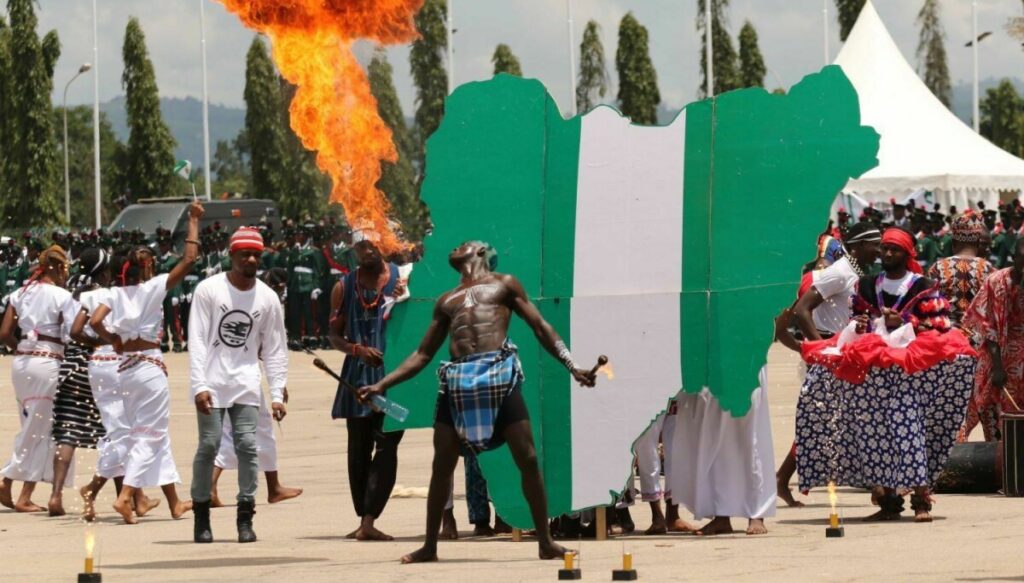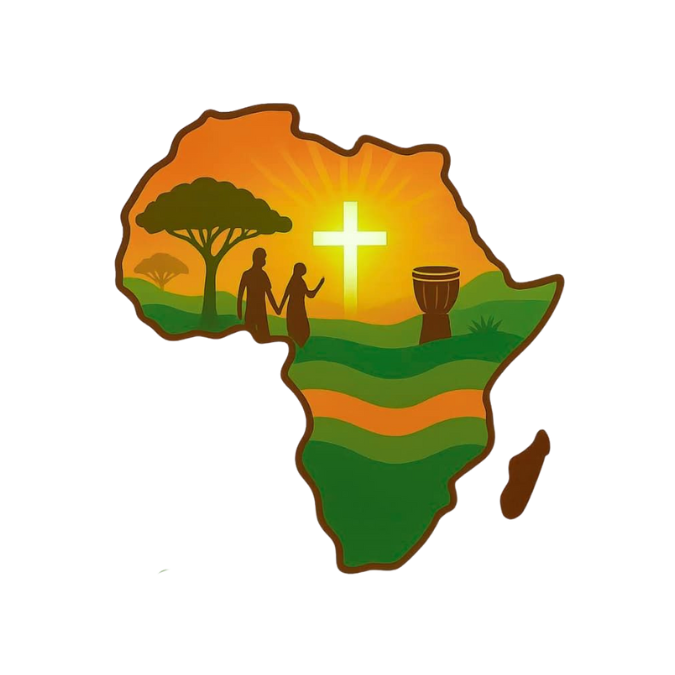
Nigeria’s Independence Day has come and gone, and once again, we are back to business as usual. Around a confused president, politicians and their allies gathered to sing praises and pretend that the nation is thriving, when in truth, we are only shadows of our early glories. On the same day, many Nigerians gathered in their churches and mosques to recite the familiar prayer, “For Nigeria in Distress.”
But on this 65th anniversary, a painful question arises from the pews and the streets alike: Why does God seem silent? Why are things getting worse? Why do the labours of our past heroes feel in vain, contrary to the words we sing in our national anthem?
Growing up, I can still remember how we prepared for Independence Day. We rehearsed for weeks, waiting with excitement for the moment to arrive. This year, by contrast, even the president cancelled the national parade — after all, what is there to celebrate? And so, as I write on this 65th anniversary, other sounds haunt my heart: the gunshots that claimed the life of Fr. Matthew Eya of Nsukka Diocese on September 19, 2025, ambushed while returning from a pastoral assignment.
I also remember Somtochukwu Maduagwu, a young Arise TV journalist, who was the victim of a robbery attack in Abuja on September 29, 2025, and later died. These figures add to the grim toll of more than fifty security operatives killed in various attacks across Nigeria in September alone.
Their blood stains our celebrations. What does freedom mean when citizens cannot walk their roads without fear, when priests and sisters are kidnapped, and when mothers bury their children too soon?
Africa’s Shared Bilan
Nigeria was not alone in gaining independence. Seventeen nations achieved independence in 1960. Flags were raised, anthems composed, and the world celebrated a new dawn. Leaders such as Kwame Nkrumah in Ghana, Léopold Senghor in Senegal, and Julius Nyerere in Tanzania represented the hope of a continent reclaiming its identity.
But the overall picture is mixed. Congo descended into chaos after the murder of Patrice Lumumba. Ghana swung between hope and coups. Uganda endured the terror of Idi Amin. Rwanda’s genocide left scars that will never fully fade. Sudan was torn apart by decades of civil war. Across the continent, sovereignty was achieved, but justice, peace, and dignity proved harder to secure.
Alongside these failures, there were also signs of resilience: Tanzania managed relative stability under Nyerere, and Botswana became a model of democratic governance after 1966.
Nigeria as a Mirror
Nigeria reflects this continental story in sharp relief. With her 230 million people, oil wealth, fertile land, and vibrant cultures, she should be Africa’s beacon. Instead, the resource curse deepened corruption, drained institutions, and left schools and hospitals starved of care. The civil war of 1967–1970 foreshadowed conflicts in Sudan and Ethiopia. Today’s terrorism, banditry, and separatist agitations echo the insecurity of the Sahel, Somalia, and beyond.
But the mirror is not only dark. Nigeria’s resilience shines too: Nollywood tells stories that reach the world, Afrobeat carries the rhythms of survival, and students and traders push through hardship with stubborn courage.
Additionally, in her early years, Nigeria played a leading role in Africa’s struggles — from peacekeeping missions in Liberia and Sierra Leone to standing firmly against apartheid in South Africa. Writers like Chinua Achebe, Wole Soyinka, Zulu Sofola, and Flora Nwapa carried Nigeria’s voice to the world.
This mixture — brilliance and brokenness, wounds and wonder — is Nigeria’s gift and burden, and Africa’s reflection.
The Church’s Burden
From the beginning, the Church played a pivotal role in helping Nigeria achieve its independence. Mission schools, such as those run by Catholics and Anglicans, formed the nation’s early leaders — Nnamdi Azikiwe and Obafemi Awolowo, among them. Beyond literacy, these schools nurtured civic awareness and a sense of human dignity, laying the foundations for political consciousness.
In later years, the Church’s voice often rose in times of darkness. During the Civil War, Catholic parishes and charities, such as Caritas, provided food and shelter to displaced families. Under General Sani Abacha in the 1990s, the Catholic Bishops’ Conference issued pastoral letters that openly condemned corruption and repression, making the Church one of the few moral voices left standing.
Yet the witness has not always been consistent. At times, Church leaders stood too close to power or allowed denominational rivalry to weaken their credibility. Now, with priests murdered and sisters abducted, the Church herself bleeds. Silence is tempting — but silence is betrayal.
Even today, dioceses in Benue and Borno continue to shelter displaced families, and Caritas Nigeria provides food and medical relief where government aid is unavailable. Bishops have consistently spoken against electoral malpractice and insecurity, reminding the nation that silence is not an option.
Her true task is not to bless regimes but to stand where the state fails: in classrooms without desks, in clinics without medicine, in camps for the displaced. There, in solidarity with the poor, the Church lives her prophetic vocation as a witness to the God who hears the cry of the oppressed.
Independence as Vocation
Independence was never completed in 1960. It is a vocation renewed daily. The question is not only whether we are sovereign, but also whether we are free for justice, peace, and human flourishing.
Africa’s future will not be secured by oil revenues, foreign loans, or military might. It will be secured when we remember what our ancestors always knew: I am because we are. Freedom is interdependence — the weaving together of life across tribes, faiths, and classes.
As Nigeria marks 65 years, I think of a lamp set upon a stand. It does not remove the night, but it pushes back the darkness enough for the journey to continue. Nigeria’s path is wounded, yet her people refuse despair. If Nigeria is Africa’s mirror, then her renewal can be Africa’s hope. And if the Church, though scarred, dares to stand and speak, she will be that lamp — the flame that no violence, no fear, and no silence can put out.




1 comment
Fr. Nnaemeka this is a very inspiring and thought provoking article. Let’s keep the voices coming as we pray for prophetic leaders who will be sent by God to liberate our land and God’s children. A place where people will bid farewell to corruption and tribalism to call for good governance born out of true patriotism.